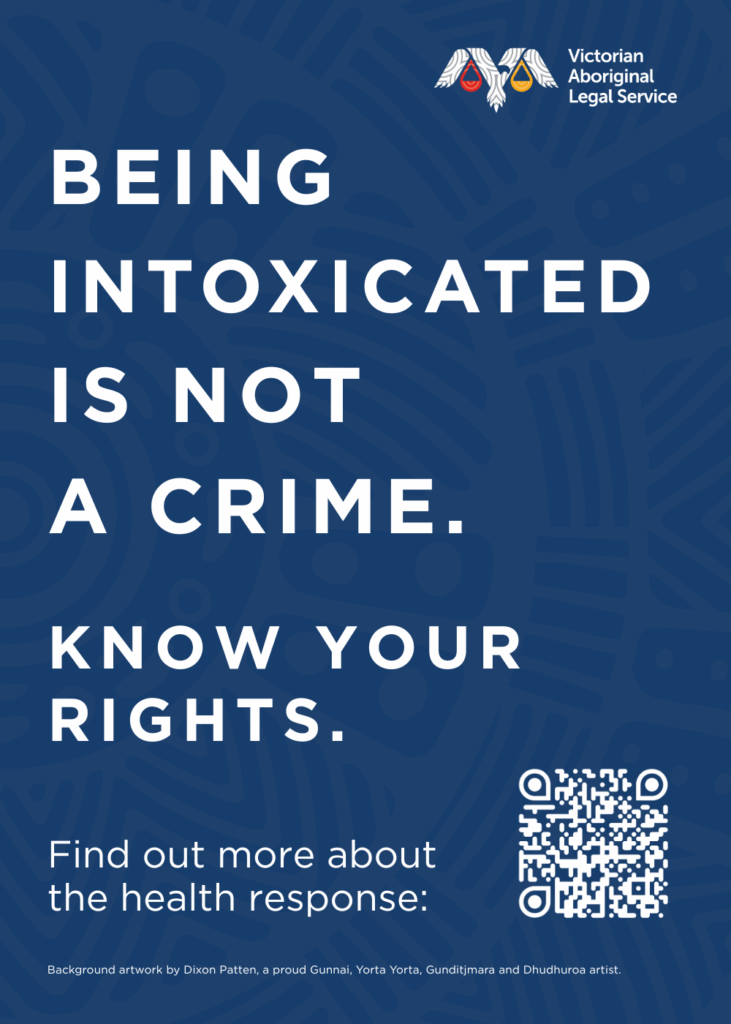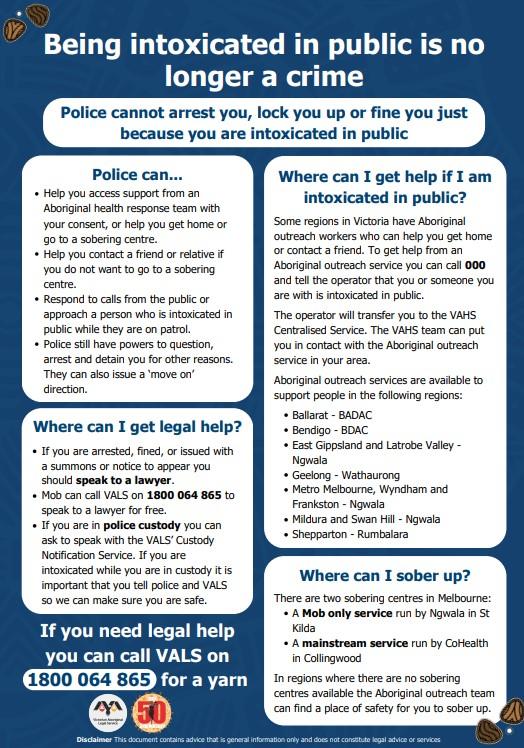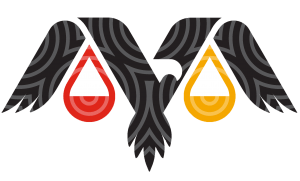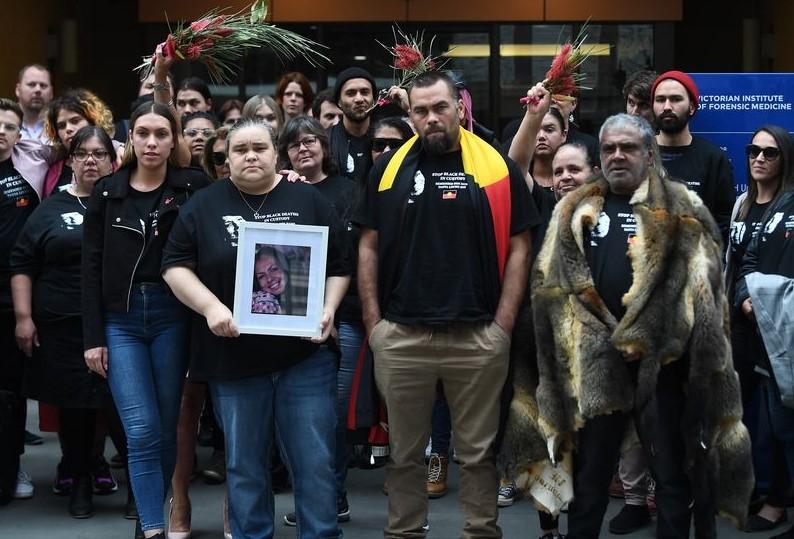


It is no longer a criminal offence in Victoria to be intoxicated (affected by alcohol) in public.
Police cannot arrest, detain or fine you for this offence.
For decades, the offence of public intoxication has been applied in a discriminatory way to target and criminalise Aboriginal people but being affected by alcohol in public is a health issue which requires a health response.
What health services are available?
If you are affected by alcohol in public, you may be able to access support through the following health services:
- Outreach workers can help you contact a friend or family member, organise transport to get home safely, or help you find another safe place to sober up.
- Sobering centres provide a safe place to sober up.
On-demand places of safety are safe places where you can sober up under the supervision of outreach workers. - Referrals and information: staff at sobering centres and outreach staff can provide you with information and referrals to other services.
There are outreach workers in metro Melbourne and regional Victoria, including in Ballarat, Bendigo, East Gippsland, Geelong, Latrobe, Mildura, Swan Hill and Shepparton.
Outreach services for Aboriginal people are provided by Aboriginal organisations, including:
- Ngwala Willumbong Aboriginal Corporation (Melbourne Metro, Wyndham, Frankston, East Gippsland, Mildura, Latrobe and Swan Hill)
- Rumbalara Aboriginal Cooperative (Shepparton)
- Bendigo & District Aboriginal Cooperative (BDAC) (Bendigo)
- Wathaurong Aboriginal Cooperative (Geelong)
- Ballarat and District Aboriginal Cooperative (BADAC) (Ballarat).
There are also non-Aboriginal outreach services in metro Melbourne provided by CoHealth.
The services that you can access depends on where you live. If you’re not sure, reach out to your local Aboriginal Community-Controlled health clinic or see the website of the Department of Health for more information.
Why has public intoxication been decriminalised?
For decades, the offence of public intoxication has been applied in a discriminatory way to target and criminalise Aboriginal people. In December 2017, much-loved mother, grandmother, sister and proud Yorta Yorta woman, Aunty Tanya Day, passed away after falling and hitting her head in a police cell in Castlemaine, Victoria.
Aunty Tanya was locked in the police cell for being intoxicated in a public place after falling asleep on a train.
Thanks to the advocacy of the Day family, the Government committed to decriminalise public intoxication and replace it with a health response in 2019. In 2023 – the law finally change.
This reform is long overdue – decriminalising public intoxication was first recommended by the Royal Commission into Aboriginal Deaths in Custody over thirty four years ago.

Download VALS resources about the decriminalisation of public intoxication below:
• Community Fact Sheet
• Flyer – regions with an Aboriginal health response
• Flyer – regions without an Aboriginal health response
• Poster – regions with an Aboriginal health response
• Poster – regions without and Aboriginal health response


